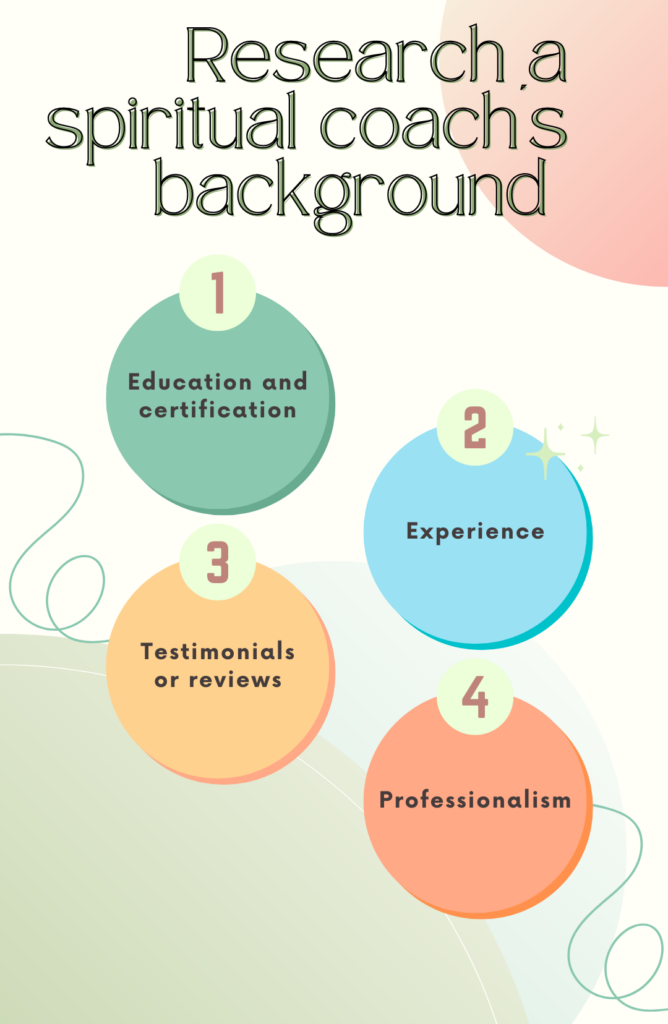Spiritual growth is a deeply personal and often transformational journey. Many people traverse it alone, while others seek the guidance of a spiritual coach to help them along the way. If you feel drawn to the idea of finding a spiritual coach who can support and challenge you to grow in your own spiritual practice, this guide is crafted to assist you in that quest.
Understanding the Role of a Spiritual Coach
Before beginning your search, it’s critical to have a clear understanding of what a spiritual coach is and how they can support you. A spiritual coach is often a person who has gone through or is adept in spiritual practices and traditions. This individual helps you to:
- Uncover and understand your values and beliefs.
- Develop and maintain a consistent spiritual practice.
- Manage challenges that may arise from developing a deeper spiritual connection.
- Work through spiritual concepts you are grappling with.
- Navigate any specific spiritual teachings or practices you have chosen to undertake.
Spiritual coaching is a partnership between the coach and the seeker, with the goal of uncovering and developing the seeker’s inherent spirituality.

How to choose the right spiritual coach
It is vital to identify what you’re looking for in a spiritual coach. Reflect on the following questions:
- What spiritual tradition or practice is important to me, and do I desire a coach within this tradition?
- Do I prefer one-on-one coaching, or am I comfortable in a group setting?
- What qualities do I want my coach to have? This could be patience, wisdom, empathy, experience, or a particular personal philosophy.
- What do I hope to achieve with the help of a spiritual coach? This could include deepening meditation practices or working on overcoming specific spiritual challenges.
Understanding your needs and preferences will help you narrow down your choices and ensure that you connect with someone who shares your goals and comfort level.
In-person vs online spiritual coaching: Which is right for you?
The rise of technology has made online spiritual coaching a viable option for many seekers. It offers convenience, flexibility, and the ability to connect with coaches from all over the world. On the other hand, in-person coaching allows for a more personal and intimate experience, as well as the opportunity to physically be in a sacred space or participate in rituals together.
Choosing between in-person and online coaching ultimately depends on your preferences, goals, and access to resources. It’s essential to consider both options and decide which one best fits your needs.
Building a relationship with your spiritual coach
Once you have found the right spiritual coach for you, it is essential to establish a strong connection and build a relationship based on trust and mutual respect. It will take time and effort, but it is crucial for the success of your spiritual journey. Some tips to help build a strong relationship with your coach include:
- Being open and honest about your goals, struggles, and beliefs.
- Actively listening to their guidance and insights.
- Communicating openly and regularly.
- Respecting their boundaries and expertise.
Remember that this relationship is a two-way street, and both parties must put in effort to ensure its success.
Networking Within Your Spiritual Community
If you’re part of a spiritual community, this is a great place to start looking for a coach. Attend group meetings, workshops, or spiritual retreats and connect with members who may act as an informal coach. They might know someone who can guide you or could even offer coaching themselves. Be open about your search and what you’re looking for—spiritual communities are often bred from a culture of support and sharing.
Where to find a spiritual coach
Nowadays, there are vast opportunities to find a spiritual coach. Numerous websites offer directories of spiritual coaches, often with profiles that detail their expertise and approach. Take time to read through these profiles and find one that resonates with you.
Social media platforms, particularly those focused on spirituality, can also be fertile ground for finding a coach. Many spiritual coaches share their teachings and philosophies online, giving you an insight into their work before making contact. Engage with their content, and if it speaks to you, inquire about the possibility of coaching.
Trusting Your Intuition
Finding a spiritual coach is about more than finding someone with the proper credentials or experience. It’s crucial to have that intangible connection where you feel comfortable sharing and learning from them. Take time to connect with potential coaches, ask questions, and trust your intuition when it comes to making a decision. Your gut feeling is often a reliable guide when it comes to finding the right spiritual coach for you.
Contacting Potential Spiritual Coaches
Try to contact potential coaches and reach out to them. Many coaches offer a complimentary session to see if there is a good fit. Use this time to discuss your spiritual goals and what you’re looking for in a coach. This session is as much about the coach assessing whether they can help you as it is for you to see if the coach’s approach aligns with your needs.
During this contact, ask about the coach’s background, training, and experience. Inquire about the types of coaching they offer, whether it’s through one-on-one sessions, group workshops, or online courses. Ensure that the practical aspects, such as fees and scheduling, work for you.
What questions to ask a spiritual coach
Treat the initial session as an interview. Prepare a list of questions that will help you gauge the coach’s ability to meet your needs. Some questions to consider include:
- Can you tell me about a particularly satisfying coaching experience you’ve had?
- What are your guiding principles when it comes to coaching?
- How do you tailor your approach to meet the needs of your clients?
- What results can I expect from working with you?
Observe how comfortable you feel with the coach and how well you can communicate. Finding a spiritual coach is a process of feeling out, and it’s essential that the connection feels suitable for both of you.
Red flags to look out for when choosing a spiritual coach
As with any profession, there may be individuals who need to be qualified or reputable. Be mindful of red flags when researching and speaking to potential coaches. These can include:
- Lack of credentials or training: A spiritual coach should have some form of education or certification in their field.
- Unrealistic promises: Beware of coaches who guarantee specific results or make grandiose claims.
- Lack of transparency: A reputable coach should be open about their background, experience, and approach.
- Pressure to sign up immediately: Be cautious of coaches who pressure you into committing without giving you time to think it through.
If something doesn’t feel right or if the coach raises any red flags, trust your intuition and continue your search. Finding a spiritual coach is a process, and it’s essential to take your time and find the right fit for you.
How to research a spiritual coach’s background and credentials
Once you have identified a potential coach, it’s crucial to research their background and credentials. This will help you determine if they are qualified and reputable. Some things to look for include:

Education and certification
A legitimate spiritual coach should have some form of education or training in their field.
Experience:
Look for coaches who have been practicing for at least a few years and have a track record of helping clients achieve their spiritual goals.
Testimonials or reviews:
Check for testimonials or reviews from previous clients. It can give you an idea of the coach’s approach and effectiveness.
Professionalism:
A reputable spiritual coach may be affiliated with professional organizations in their field, which can provide further validation of their expertise.
Summary
Finding a spiritual coach is a beautiful step toward deepening your spiritual practice and growth. It’s a process that requires thought, reflection, and sometimes courageous introductions. The most important aspect of spiritual coaching is the relationship between coach and seeker. Trust your intuition, ask meaningful questions, and be aware of any red flags as you embark on this exciting path toward growth and enlightenment. Don’t be afraid to start your journey towards finding a spiritual coach today.

Be the first to comment